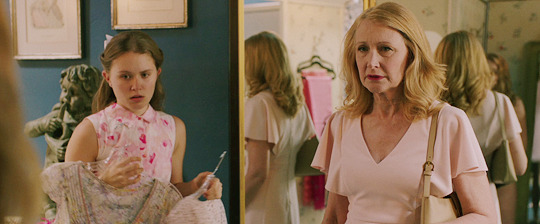WHAT MY BONES KNOW BY STEPHANIE FOO
- Khatia Nebulishvili
- Feb 19, 2024
- 4 min read
“ I told myself, I am not a girl. I am a Sword”- I used to tell it to myself (there is a literal song about me, which a friend of mine wrote: you are a very strong person, Khatia..") and at some point I decided that It was not fair to be only strong (it's not fair towards me, it's not fair towards my people) and I decided to be kind, not so strong sometimes, well, let's be honest, I just decided to be human :)) And do you know what this book did? It told me that I made a good decision, that it's okey to be human. In my thirties I have a right not to be a sword, turns out I am very good at being Khatia too.

It was not easy to read this book, mostly because I knew that it was a memoir and that all this abuse really happened to the writer, that she had to deal with it, she had to survive her mother's physical abuse:
"one time I wasn’t allowed to eat dinner. Instead, my mom told me I had to cross my arms, pull on my earlobes, and do squats in front of my family while they ate their meal in silence. And then there was
the time during a visit when I was six when I disagreed with my mom about what my homework assignment was. She beat me with a ruler for talking back. She beat me for hours."
“You’ve ruined my life. I wish you were never born. All you ever do is make me look bad. All you ever do is humiliate me.”

“After my mother’s worst panic attacks, after the most vicious beatings, she curled into a ball on the floor and rocked back and forth. Eventually, in the dry, crackling silence, she whispered that I ruined her life, so now it was time to end things, to take all of her pills. “Please, no, Mommy,” I begged, and I tried to give her reasons to keep living, reasons why we appreciated her and all of her sacrifices, reasons why she was a good person who was needed in this world. Sometimes this worked. Other times, she’d ignore me and lock
herself in her bedroom. She told me that if I called 911 and she lived, she’d slit my throat. So I sat outside with my ear pressed to the door, straining to hear her breath, trying to decide at what point it would be worth it—at what point I should trade my own life for hers.”
she had to survive her emotionally unavailable father:
“One of my suicide letters read:
Father—I bet I’ve been gone for over 24 hours before you found me. You don’t deserve a goodbye.”

'Why should I have to teach my father how to love me?"
but the question is: did she really survive?

and sometimes after all this abuse, our heads are not a safe place at all:
“made a star chart and hung it on my closet door, awarding myself stickers when I did more freelance work, created more art, got more stories on the show. Always, always: I tried to be good. But when the dread was at its most terrible, no matter what I did, I was never good enough.”
Maybe work was not salvation. Maybe it was a symptom
"My anger was my power. It was what protected me. Without it, wouldn’t I be sad and naked?"
"So even though my friends were constantly attempting to fill the great void of my self-hatred with generous words, assurances, and compliments...they were all simply getting sucked into that black hole, mere crumbs for my intense desire. I dismissed them. In the end, my friends’ exhortations had gone to Waste.”
And obviously..

We need our trauma not to be the main character of our life:
"And here’s what makes complex PTSD uniquely miserable in the world of trauma diagnoses: It occurs when someone is exposed to a traumatic event over and over and over again—hundreds, even thousands of times—over the course of years. When you are traumatized that many times, the number of conscious and subconscious triggers bloats, becomes infinite and inexplicable. If you are beaten for hundreds of mistakes, then every mistake becomes dangerous. If dozens of people let you down, all people become untrustworthy. The world itself becomes a threat."
"Trauma is mourning the fact that, as an adult, you have to parent yourself. You have to stand in your kitchen, starving, near tears, next to a burnt chicken, and you can’t call your mom to tell her about it, to listen to her tell you that it’s okay, to ask if you can come over for some of her cooking. Instead, you have to pull up your bootstraps and solve the painful puzzle of your life by yourself. What other choice do you have? Nobody else is going to solve it for you."
It's not easy to start healing process but it's much easier than living with monsters all the time and please remeber: “...𝑤𝑒 𝑐𝑎𝑛𝑛𝑜𝑡 𝑠𝑖𝑚𝑝𝑙𝑦 𝑠𝑖𝑡 𝑎𝑛𝑑 𝑠𝑡𝑎𝑟𝑒 𝑎𝑡 𝑜𝑢𝑟 𝑤𝑜𝑢𝑛𝑑𝑠 𝑓𝑜𝑟𝑒𝑣𝑒𝑟.” (Haruki Murakami, 1Q84)
here you can read this book:










Comments